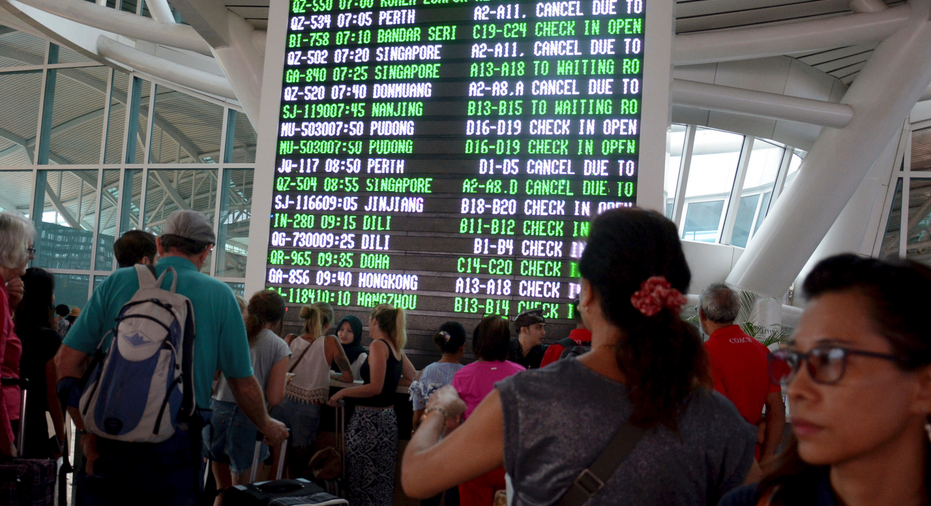Bali volcano: What travelers need to know

JAKARTA, Indonesia – The Mount Agung volcano on Bali has erupted for the first time in more than half a century, forcing closure of the Indonesian tourist island's busy airport as the mountain gushes huge columns of ash that are a threat to airplanes. Here's what travelers need to know.
___
WHAT HAPPENED?
Ash from the volcano reached the Bali airport's airspace, triggering its closure early Monday. More than 400 flights to and from Bali were cancelled and nearly 60,000 travelers have been stranded. Travel disruptions will ripple around the globe as the island is one of Asia's top destinations, attracting 5 million visitors a year. December through the first week of January is one of the island's busy periods. The airport's initial closure is for 24 hours until early Tuesday but there could be prolonged or repeated disruptions because the volcano may spew ash for weeks or have even bigger eruptions. Flights from other Indonesian airports were experiencing delays Monday because Bali's I Gusti Ngurah Rai airport is a national hub with many transiting flights.
___
TRAPPED IN PARADISE?
Travelers can still leave Bali, though probably at significant cost, by taking a ferry from Gilimanuk port to Banyuwangi on Java island to the west and then traveling by car, train or plane to the Indonesian capital Jakarta for international connections. Another possible route is a ferry to the neighboring island of Lombok and then a flight to Java though ash temporarily closed Lombok's airport on Sunday and there could be further closures. The government says it has provided 100 buses to transport people from the international airport to ferry ports. Alternatively, visitors could wait to see if the airport reopens though there's likely to be long waiting lists for flights when it does. Indonesia's tourism ministry said member hotels of the Indonesia Hotel and Restaurant Association will provide a night's free accommodation to guests affected by the airport closure.
___
HEADING TO BALI
Some governments are advising citizens to defer travel to the island. Malaysia's foreign ministry said all but non-urgent travel should be delayed while Australia, a big source of tourists for Bali, said people should be aware that ash clouds could also close other airports in Indonesia depending on weather conditions. A spokesman for major Japanese travel bureau JTB Corp. said all tours set to depart Monday from Japan were canceled because of the airport closure. Yoshimi Tajima said some people can't change their travel dates and are switching to other destinations while others are changing the dates. "What will happen from tomorrow is still unclear," she said. The Chinese foreign ministry issued a statement urging travelers to be "vigilant about safety" when deciding whether to visit Bali.
___
LOCAL CONDITIONS
The popular tourist areas of Kuta and Seminyak and the airport are about 70 kilometers (43 miles) from the volcano and largely safe even with a major eruption though masks and goggles could prove necessary if there's significant ash fall. Authorities have ordered 100,000 people to leave a danger zone that extends 10 kilometers (6 miles) from the crater in places and tourists shouldn't enter it. The area, which includes a much-visited Hindu temple on the slopes of the volcano, will be prone to deadly mudflows and lava. The risk of mudflows, which combine water and volcanic debris, is high because it's the wet season in Bali. Authorities have warned people to stay away from rivers.
___
AP Business Writers Yuri Kageyama in Tokyo and Joe McDonald in Beijing contributed to this report.



















